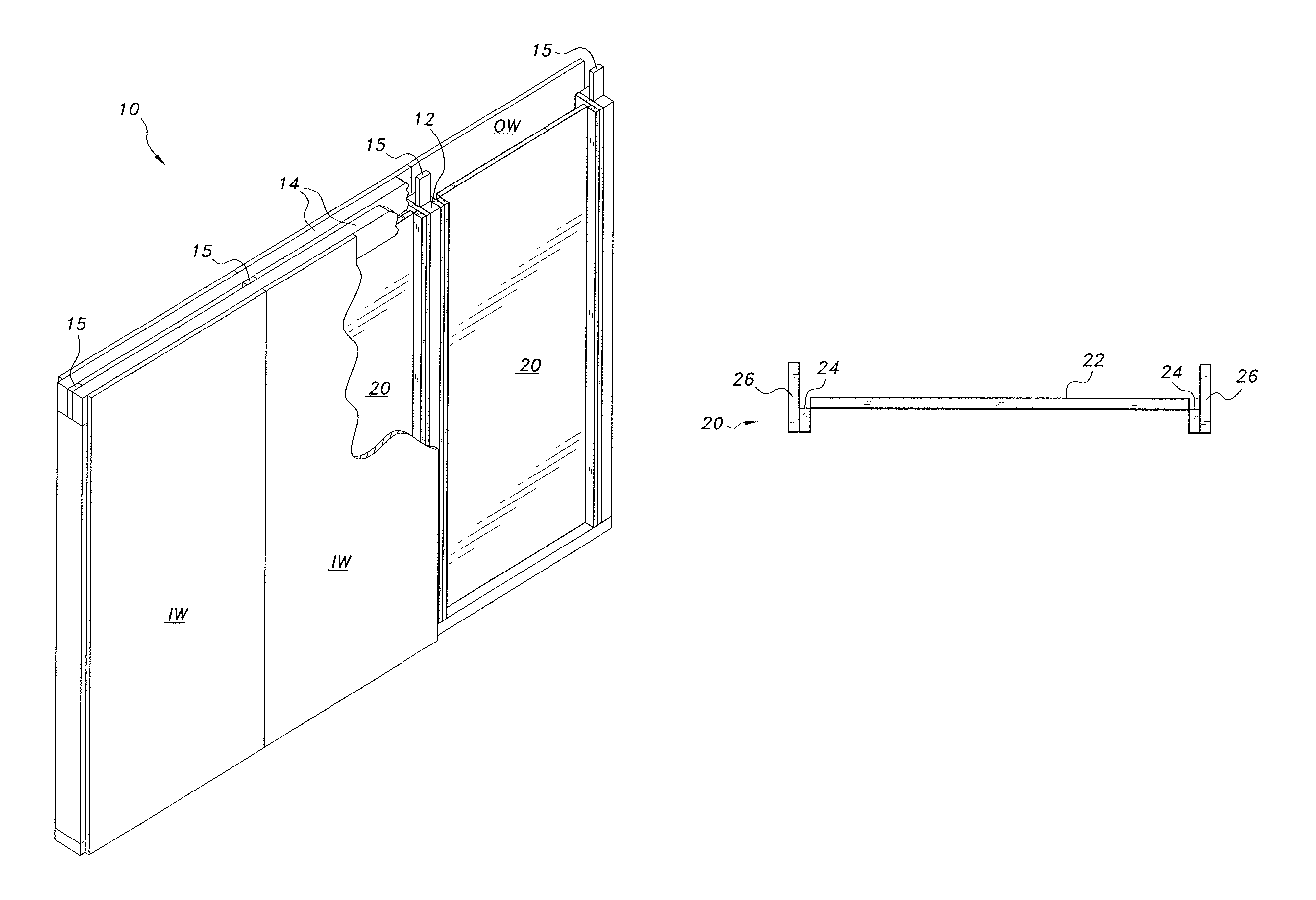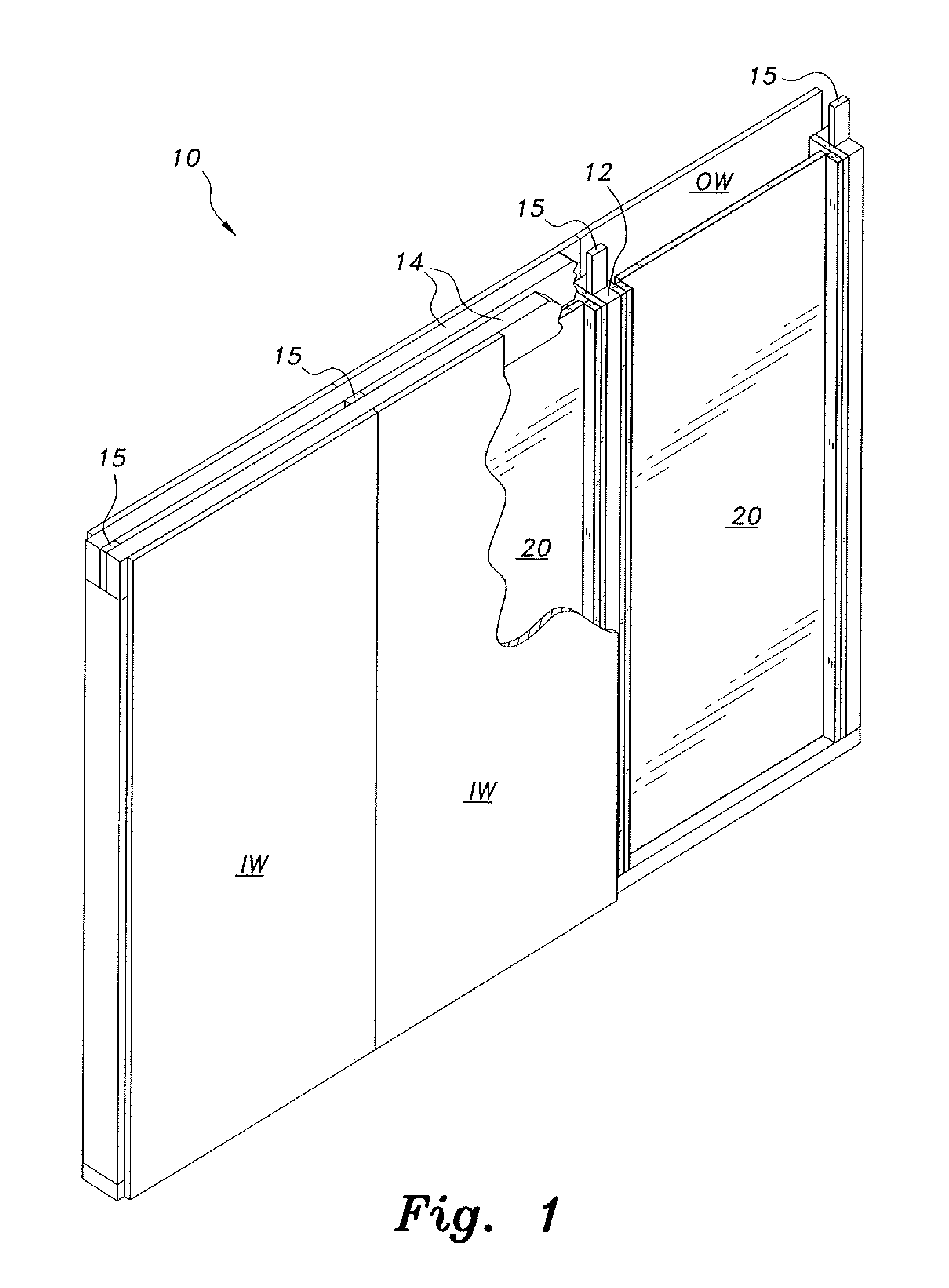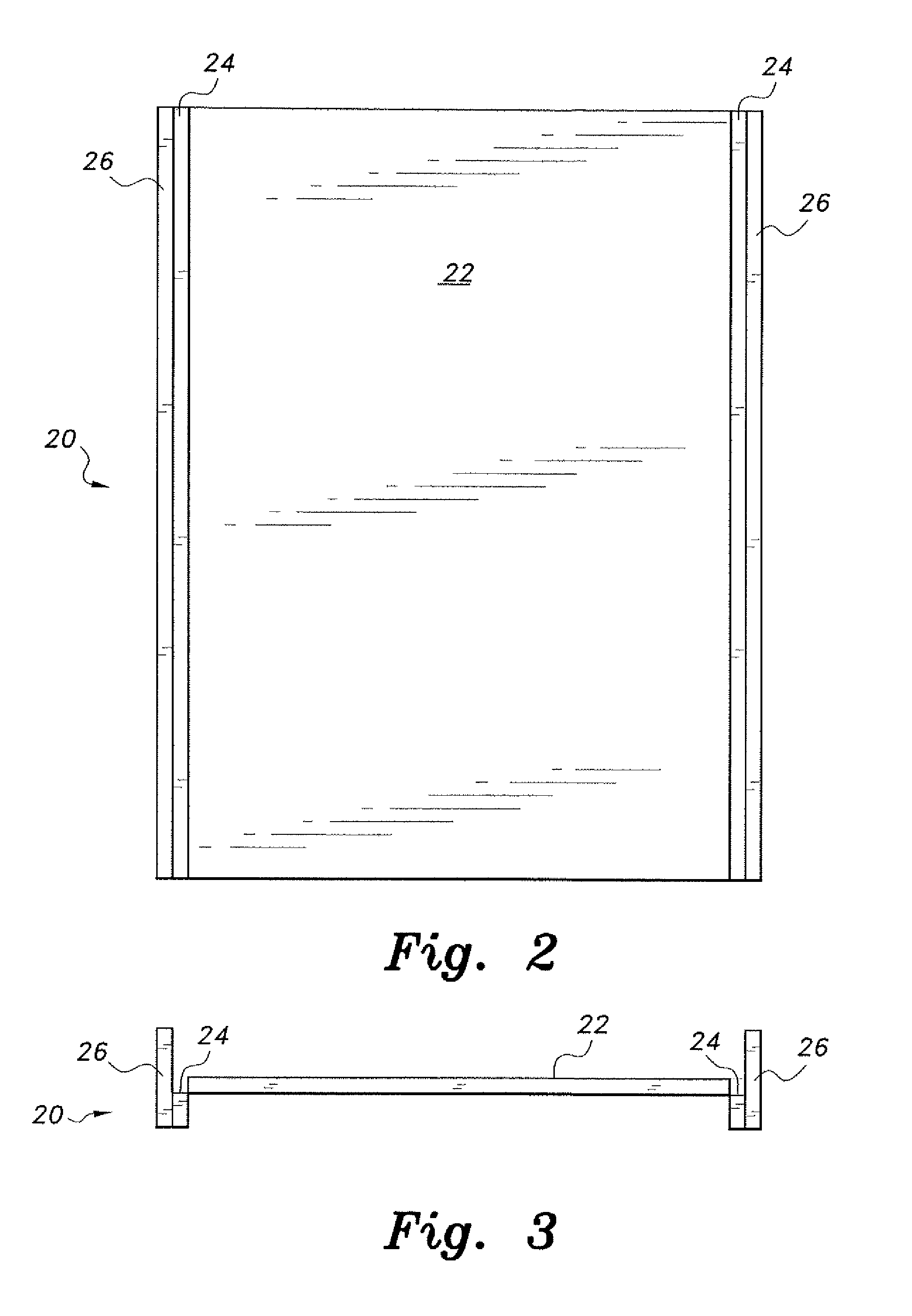Thermal energy venting system
a venting system and thermal energy technology, applied in ventilation systems, building repairs, heating types, etc., can solve the problems of insufficient venting, inefficient ventilation, and high cost of heating and cooling a building, and achieve the effect of reducing heating/cooling energy expenditure and cos
- Summary
- Abstract
- Description
- Claims
- Application Information
AI Technical Summary
Benefits of technology
Problems solved by technology
Method used
Image
Examples
Embodiment Construction
[0018]The thermal energy venting system, generally referred to by reference number 10 in the drawings, provides a thermal break for all three forms of thermal energy and an efficient means of venting thermal energy back out to the environment from a domicile or other building. As shown in FIGS. 1-5, the thermal energy venting system 10 includes a thermal insulation wall, panel or board 20 configured to be mounted between the studs 12 of a wall. The insulation board 20 is designed to form a venting channel between adjacent studs, roof rafters and trusses.
[0019]As shown in FIGS. 2 and 3, the insulation board 20 includes a center panel 22, orthogonally disposed intermediate panels 24 and outer panels 26. In the embodiment shown in the figures, the insulation board 20 is preferably manufactured as a flat board with pre-scored or hot-wired lines adjacent the lateral ends so that the user may fold the lateral ends into the configuration shown in FIG. 3. An example of producing these score...
PUM
 Login to View More
Login to View More Abstract
Description
Claims
Application Information
 Login to View More
Login to View More - R&D
- Intellectual Property
- Life Sciences
- Materials
- Tech Scout
- Unparalleled Data Quality
- Higher Quality Content
- 60% Fewer Hallucinations
Browse by: Latest US Patents, China's latest patents, Technical Efficacy Thesaurus, Application Domain, Technology Topic, Popular Technical Reports.
© 2025 PatSnap. All rights reserved.Legal|Privacy policy|Modern Slavery Act Transparency Statement|Sitemap|About US| Contact US: help@patsnap.com



